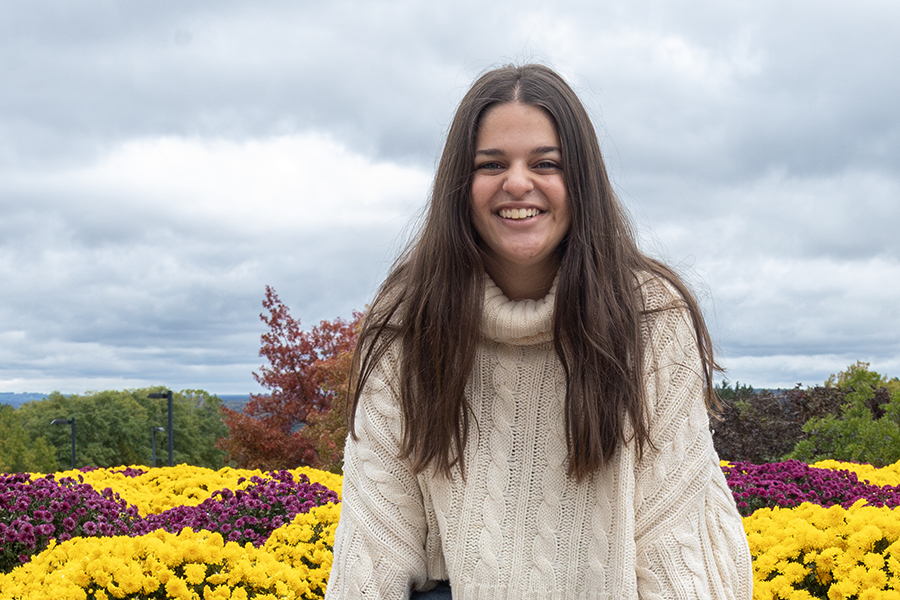Ithaca College was supposed to be the love letter the little mixed girl never got when she was growing up, when she was too hard on herself, tired of hiding who she was, and desperately wanted to find her fit in a world that never seemed to truly have a place for her. And in some ways, that was the case, but not in the way I expected. I believed the MLK Scholarship program was a start. This was the first time I truly felt seen as someone worthy of membership in the BIPOC community. A person who learned to advocate for herself and others struggling to find their voice. And yet, something was missing.
Unlike my peers, I was met with a constant barrage of “What are you?” after every proud claim of my race, which was the denial of everything I’d ever known. I always felt ashamed and embarrassed going to a BIPOC event needing to explain why I was there or being told I wasn’t “BIPOC enough” in my own dorm room. But when the college’s YikYak community decided to make me the subject of a race debate in Spring 2022 over whether I was even BIPOC at all, I decided to make a change. If there wasn’t a place for me on this campus, I was going to make one.
Three years later, the college’s only BIPOC theater organization, Harmony Theatre Collective, continues to provide performers the safe and welcoming artistic environment that I wish I had throughout college. Through my efforts in creating
media that is representative of our ever-changing world, I aim for artists everywhere to believe they can achieve everything they set their minds to, regardless of the color of their skin. Anchored in the belief that one narrative can never encompass the entire human experience, I have spearheaded theater productions across campus with the intent of highlighting
BIPOC voices.
Growing up, I had a complicated relationship with my identities. To simplify it, I pretended they didn’t exist. That way, they couldn’t hurt me and nothing needed explaining. I come from a multicultural home and a mosaic of backgrounds. My father’s mother was Irish and German, and his father was a first-generation immigrant from the comune Vasto in southern Abruzzo, Italy. My mother is Ashkenazi, Welsh, Slovakian, Czech, Irish, Polish, Nigerian,Cameroonian, Bantu and Ghanaian.
My grandma, a white woman, and my poppy, a Black man, married in Philadelphia in 1962 during the height of the Civil Rights Movement. They found a place to build their home in the small unsuspecting town of Sellersville, Pennsylvania, where an interracial family was not what the neighbors expected. Despite the rocks at the windows, the beautiful brick structure remained, housing three generations, even when its original owner was gone. I lost my poppy two years after I was born, and for 13 years of my life, my identity died with him. There I was, a little girl with straight brown hair, green eyes and light skin and I was supposed to convince the whole world that I was a person of color. I did what any normal child would do: I denied my identity in the hopes of fitting in.
While it didn’t take me long to find my voice in a predominantly white institution, it didn’t come easy. Where I fought and struggled to forge the foundations of a home, many are still struggling to find their footing with little to no help from the college itself. While many programs and organizations like Harmony have pushed for change, it only goes part of the way. Uplifting minority voices shouldn’t be an option, but an obligation. BIPOC students deserve to have their cultures at the forefront of curriculum. BIPOC organizations and resource centers deserve proper funding to ensure that every person has the potential to grow into their fullest self. They cannot do that believing they are only worthy of space because they checked a certain box. People of color shouldn’t have to make their own spaces on campus to feel seen. So listen, learn and educate, because when it comes to identity, no one has anything to prove.














